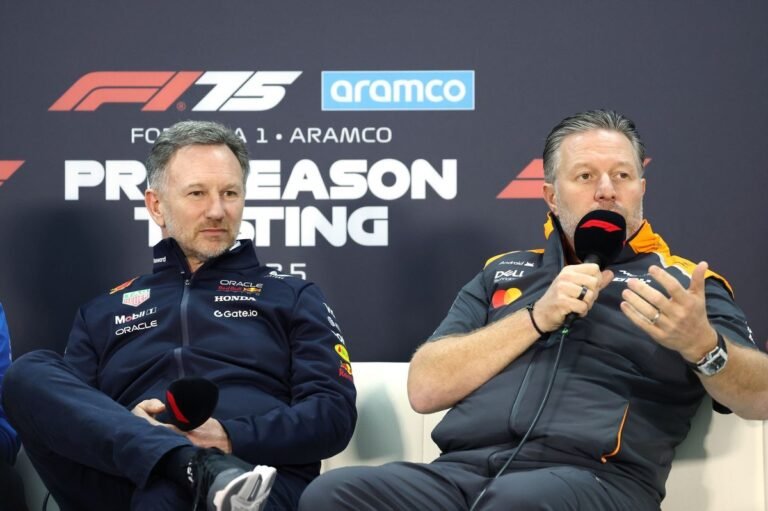F1 Engines Future: Key Discussions from Bahrain Meeting
In a significant gathering held in Bahrain, Formula 1 stakeholders focused on the future of the sport’s engine regulations, particularly the 2026 framework. The meeting directly followed a media session featuring Nikolas Tombazis, the FIA’s single-seater commission director, who raised critical questions about the long-term engine formula and immediate steps leading to it.
Regulatory Landscape: A Firm Stance
Consensus emerged among major manufacturers against scrapping the anticipated 2026 regulations. Key players—Audi, Honda, and Mercedes—expressed firm resistance against any last-minute changes. Mercedes CEO Toto Wolff emphasized that F1 must act as a "reliable partner," advocating for stability in regulation.
Daimler CEO Ola Kallenius echoed this sentiment, stating that a supermajority is essential for any alterations. The FIA reiterated that changes would depend on a "broad consensus" among manufacturers.
Future Engine Specifications
Discussions ventured into the technical specifications of future engines, with suggestions around a V10 or V8 featuring KERS. However, concerns regarding weight and additional fuel requirements complicate this proposition. According to the FIA, electrification will remain an integral element in future considerations, aligning with industry trends towards sustainability.
Audi advocates for turbo engines as a step towards relevant technology transfer to road cars. Meanwhile, F1 drivers, including Esteban Ocon, have expressed dissatisfaction with the current engine sound, advocating for naturally aspirated engines to restore a more appealing auditory experience.
Political Dimensions of 2026 Regulations
As discussions surrounding the 2026 regulations evolve, two main concerns have emerged: the anticipated racing dynamic and the potential for one manufacturer to dominate. Driver Carlos Sainz articulated his reservations about the current regulation outlook, indicating a desire for a "tweaked" V10 engine if it could enhance quality racing.
McLaren principal Andrea Stella reminded stakeholders to prioritize the sport’s interests and avoid undermining potential successful regulations, advocating for collaboration to refine current guidelines.
Technical Adjustments and Sustainability
The complex interplay between electric power and the internal combustion engine during races remains contentious. Red Bull’s Christian Horner highlighted fears of excessive "lifting and coasting," which could detract from race entertainment. Conversely, Wolff described calls for substantial adjustments to electric ratios as unfounded, asserting that adapting regulations should have occurred earlier in the process.
Discussions also touched on potential changes to the current energy deployment regulations, presenting a politically charged landscape where interests may conflict.
Conclusion
As the clock ticks towards 2026, the FIA faces mounting pressure to ensure that any changes genuinely reflect what is best for the sport. With a focus on sustainability, competitiveness, and fan experience, the path ahead for Formula 1’s engine regulations remains intricate and critical for the future of racing.



